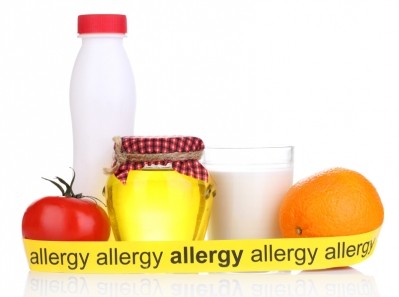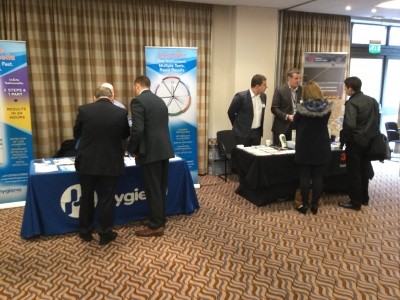Anaphylaxis Campaign annual conference 19 September, London
Validated cleaning and judging risk in allergen control

Julia Pepler (Banks), founder and director of Food Integrity Consulting, specialises in risk assessment and implementation of controls to prevent cross contamination in factories.
She is one of the presenters at the Anaphylaxis Campaign annual conference on 19 September in London. Her talk includes exposing and analysing manufacturing pitfalls when it comes to allergen awareness.
The event will cover allergy-related issues, including risk management in factories, food recalls, the free-from market and the latest in scientific knowledge.
Allergen issues during audits
Pepler (Banks) said third party audits are important and allergen related issues are high on the agenda.
She added common mistakes are risk assessment not done properly or thoroughly enough, the wrong emphasis given to low risk areas such as storage and the importance of cleaning being underestimated.
Cleaning shared equipment and validating cleaning was a common problem, said Pepler (Banks).
“One mistake is trying to use rapid test kits to validate cleaning, validate using a lab then rapid test kits are ok for day to day validation,” she told FoodQualityNews.
“Areas ingredients and product are exposed and close contact to production equipment such as a mixing bowl is a high risk, the storage area is low risk unless someone picks the wrong ingredient.
“With colour coding purple, yellow and blue are common but the trouble is people have to remember it. My preference is the best allergen control is no allergen control, what I mean by that is it is in existing food practices, if you layer on extra things people forget, it has to be safe by design.”
Pepler (Banks) has worked with the Anaphylaxis campaign for around 20 years and spoken at previous conferences. She was an auditor at Marks and Spencer before founding Food Integrity Consulting in 2002.
Judging risk
People really struggle with making judgements on risk, she said.
“Allergens have always taken seriously by food manufacturers but it is a consistent struggle to understand what good looks like and the lack of practical guidance on what good looks like by auditors.
“The Food Information for Consumers regulation covered intentional presence, it is less straightforward to assess the accidental contamination risk and it is difficult to understand what is acceptable or not and what represents a risk.”
Allergen recalls can be caused by different reasons, said Pepler (Banks).
“The most common way is the wrong packaging is used so the allergen is not on the label, the second is a problem or mistake in production, procedures are not followed and it is not realised until entering production but this is not common, the third is raw material issues with the finished product so the right questions and right checks of the supplier have not been done,” she said.
“The key things are packaging and coding checks, follow validated cleaning methods every time an allergen is used and robust checks on allergen suppliers.”
Neogen Europe, Holchem and Waitrose are sponsoring the conference.
Other speakers are Richard Wright QC, Park Square Barristers Leeds, who will present a case study, Professor Clare Mills, Manchester Institute of Biotechnology, will talk about the iFAAM project, Chun-Han Chan, FSA, on precautionary allergen labelling, Barbara Hirst, RSSL, on what free-from really means and Dr Michael Radcliffe, University College London on food allergy in the real world.





















